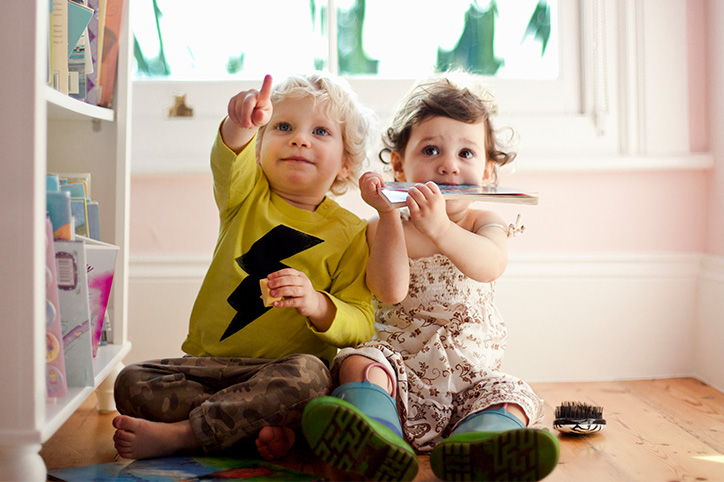There are few things as shocking to a parent as when their child gets called out at school or caught in the act at home biting siblings or other children. The truth is that toddler biting is a normal part of childhood, but it nonetheless must be dealt with. Before you panic, take a deep breath. Here, why toddlers bite, what to do if your toddler bites, and how to stop it from happening.
“I know that it can seem like a behavioral problem, but from a developmental standpoint, toddlers aren’t biting out of spite,” says Marcella Kelson, LMSW, MSc, a parental wellness expert and coach. “There are a few reasons why they bite. In social situations, toddlers can resort to biting when they are overwhelmed and are trying to regulate their emotions. Since toddlers use their mouths for all sorts of exploration, biting is a completely understandable impulse when they are very excited or upset. However, it’s not safe or healthy for the toddler or the other person involved, so for that reason, we need to reorient them and help them regulate their emotions in another way. Separately, and we see this also in infancy, some babies and toddlers are seeking more sensory input in their mouths. Meaning that their bodies are looking for a variety of sensations.”
Let’s talk prevention.
Kelson recommends introducing as many different textures in food as possible in order for their sensory needs to be met through eating. “For example, Cheerios, carrots, veggie sticks – these all provide very different sensory experiences and satisfy the impulse to bite down.” If, however, biting is occurring more in social situations, it’s often found to be a failed attempt at communication. “This is particularly challenging to manage when they’re excited or overwhelmed,” says Kelson. “Language is a very helpful tool and helping toddlers identify their emotions as early as possible will help them to express themselves verbally. I love the book, How Are You Peeling? Which shows the way various fruits wear different emotions.” Overstimulation is also a frequent cause of toddler biting. A calm, well-rested toddler is less likely to use their teeth, so try following high-energy activities with quiet play or nap time.
My toddler is biting right now… help!
First and foremost, separate the child and possibly physically remove them until they calm down to ensure everyone is safe. “Space allows the toddler to regulate their emotions,” says Kelson. “If the biting happened over a toy, for example, I would probably want to remove my child from the trigger until he was feeling regulated. These are good moments to try and help your child feel validated, rather than ashamed, but also offer some alternatives. You can offer something like, ‘I saw you were really upset when Tommy took the toy you were playing with. I understand why you were upset, I would be upset too. When we are upset, we can take some deep breaths, or jump up and down so that we feel better, but I won’t let you bite Tommy because it’s not safe for you or for him.'” And whatever you do, don’t let them profit from attacks. He doesn’t get to keep the toy that he got through aggressive means.
Bottom line: Biting is common in babies and toddlers, but if it stretches beyond age 4 or you find that it’s getting worse despite implementing the various tactics outlined here, see your doctor.








